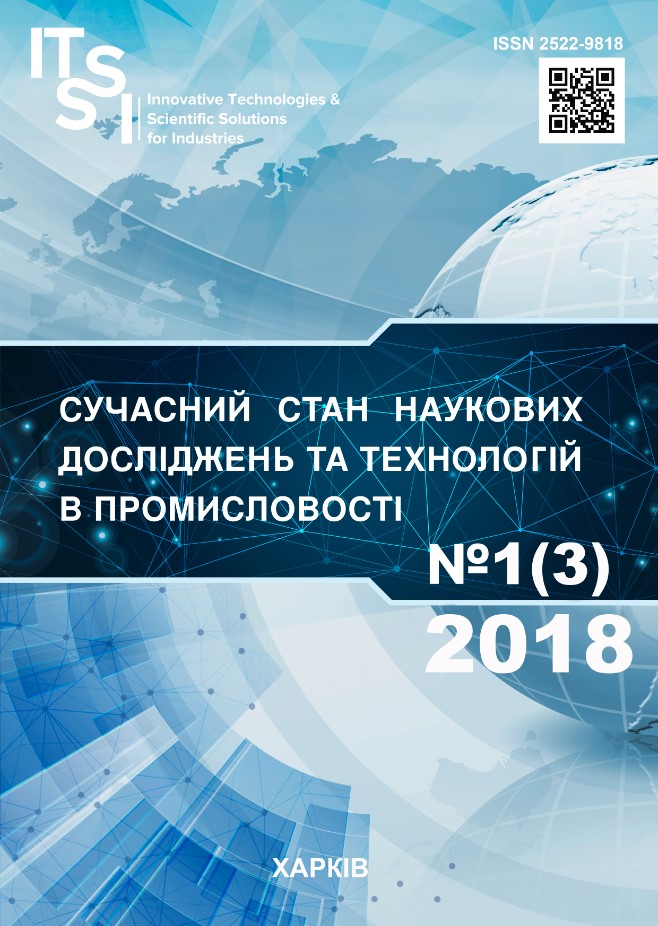LEADERSHIP AS A FACTOR FOR BUILDING A PROJECT TEAM
DOI:
https://doi.org/10.30837/2522-9818.2018.3.013Keywords:
project team, leader, leadership, team building, teamwork, relations, the system of professional training, behavioural competences, pedagogic techniquesAbstract
The subject matter of the article is to determine the role of leadership for building a project team as the team quality and the professionalism of the team participants play a key role in ensuring the proper work performance that is specified by the tasks of the project. The goal of the article is to reveal the significance of the capability of a leader to build a project team and to develop in it a favorable psychological climate, common values and ideals and show the place of this capability in the general system of the leader’s behavioural competences, that is to justify the importance of this skill and its application to increase the effectiveness of the impact of leadership on the project team. The objectives of the study involve - identifying a project team as a complex social organism where highly qualified people perform a specific set of functions; - emphasizing the fact that different individual features and qualities of participants greatly complicate the process of building a project team as well as coordinating the goals, aspirations and interests of team participants. Besides, the students who study Project Management should be familiarized with the methods of acquiring the knowledge and developing skills necessary for building a team. The methods of the study involve the analysis of the role of motivation in the process of team building since while building a team the leader has to solve many problems and the issues of motivation are among them. Second, the character of relations among the participants and the rational organization of their efficient teamwork should be analyzed. Third, the analysis of the leader’s capability to foster the professional and personal development of the participants in the teamwork is of great importance. Fourth, the effective method of cultivating in leaders the skills of building a team is increasing the level of teaching behavioural competences using innovative pedagogical techniques. Results. The clear goal setting and system use of efficient methods of building a project team are critical for professional training specialists in the sphere of project management. The development of relevant skills should be combined with the intentional development of students’ leadership potential. The adequate organization of teaching behavioural competences plays a special part and the clear practical orientation of conducting lectures and seminars using active teaching methods are of primary importance. Conclusions. First, the prevalence of command methods and forms of activity in project management significantly enhances the importance of the membership of the project team and the nature of the relations among the participants. Secondly, the effective formation of the team requires that the leader have the relevant knowledge and skills, strategic thinking, psychological culture and the ability to assess the professional competence of candidates and their significant professional and social personal qualities. Third, the leader should use a clear system of motivation and incentives to build a project team and organize the teamwork.References
Orr, Alan D., trans. from english for sciences Ed. T. V. Gerasimova (2006), Project Management: Guidance on Key Processes, Models and Techniques [Upravlinnya proektamy: Kerivnytstvo z klyuchovykh protsesiv, modeley i metodiv], Dnipropetrovsk: Balance Business Buk, 226 p.
Bushuyev, S. D., Bushueva, N. S. (2010), National Competence Baseline, NCB UA. Verson 3.1, Kyiv : IRIDIUM, 208 p.
Bennis, W., Nanus, B. (2001), Leaders, Moscow : Charlie, Silvan, 186 p.
Karnegi, D. (2000), The Language of Persuasion, Series : The Psychological Bestseller [Yazyk ubezhdeniya, Seriya : Psikhologicheskiy bestseller], Moscow : EKSMO-Press, 288 p.
Grinchenko, M. A., Ponomarev, O. S., Lobach, O. V. (2018), "Leadership in the system of behavioral competencies of the project management specialist" ["Liderstvo v systemi povedinkovykh kompetentsiy fakhivtsya z upravlinnya proektamy"], Bulletin of the National Technical University "KhPI", Series: Strategic Management, Portfolio Management, Programs and Projects, No. 2 (1278), P. 77–83.
Tarasyuk, G. M. (2009), Project Management: Teaching. manual 3rd species [Upravlinnya proektamy : Navch. posibn. 3-ye vyd], Kyiv : Caravel, 320 p.
Maxwell, J. (1998), Chief and his team, Series : Business without secrets [Shef i yego komanda, Seriya : Biznes bez sekretov], St. Petersburg : Peter, 230 p.
Mintsberg, G., Alstrend, B., Lampell, J. and trans. with English (2000), Schools of Strategies, Series : Theory and Practice of Management [Shkoly strategiy, Seriya : Teoriya i praktika menedzhmenta], St. Petersburg : Peter, 336 p.
Zavetniy, S. O., Ponomarov, O. S., Pazinich, S. M. (2011), The phylosophy vplyu: monograph, Kharkiv: Vidavets Savchuk O.O ., KhNTUsG is im. P. Vasilenko, 204 p.
Kosenko, N., Kadykova, I., Artiukh, R. (2017), “Formalizing the problem of a project team bulding based on the utility theory”, Innovative Technologies and Scientific Solutions for Industries, No. 1 (1), P. 53-57. DOI: 10.30837/2522-9818.2017.1.053
Downloads
Published
How to Cite
Issue
Section
License
Copyright (c) 2018 Marina Grynchenko, Olexandr Ponomaryov, Olena Lobach

This work is licensed under a Creative Commons Attribution-NonCommercial-ShareAlike 4.0 International License.
Our journal abides by the Creative Commons copyright rights and permissions for open access journals.
Authors who publish with this journal agree to the following terms:
Authors hold the copyright without restrictions and grant the journal right of first publication with the work simultaneously licensed under a Creative Commons Attribution-NonCommercial-ShareAlike 4.0 International License (CC BY-NC-SA 4.0) that allows others to share the work with an acknowledgment of the work's authorship and initial publication in this journal.
Authors are able to enter into separate, additional contractual arrangements for the non-commercial and non-exclusive distribution of the journal's published version of the work (e.g., post it to an institutional repository or publish it in a book), with an acknowledgment of its initial publication in this journal.
Authors are permitted and encouraged to post their published work online (e.g., in institutional repositories or on their website) as it can lead to productive exchanges, as well as earlier and greater citation of published work.














